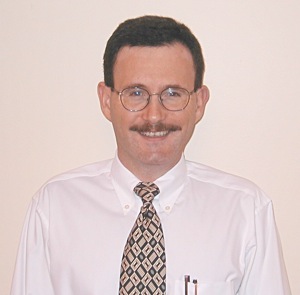-
- Assembly committee OKs same-sex marriage
- Fired transsexual Florida city manager says he won’t sue city
- Washington lawmakers pass domestic partnership bill giving rights to same-sex couples
- New Jersey same-sex couples deal with obstacles of civil unions
- Giuliani’s cross-dressing antics back in spotlight
- Las Vegas jury finds former police officer guilty of sex assault
- Lawmakers name hate crimes bill after Matthew Shepard
- National News Briefs
- World News Briefs
san diego
Poz Seminar Day speakers update community on medical breakthroughs in HIV/AIDS treatment
New drugs offer diverse therapies
Published Thursday, 19-Apr-2007 in issue 1008
Some of the most important research presented at the 2007 Annual Poz Seminar Day on April 13 suggest that the next few years may see the introduction of several new ways of treating HIV. Entirely new classes of drugs, such as entry inhibitors and integrase inhibitors, give people living with HIV, and the medical professionals who treat them, therapy options that are both robust and diverse.
“It’s a very exciting time in the field of HIV research and treatment,” said Dr. Richard Haubrich of University of California San Diego’s Antiviral Research Center (AVRC). Haubrich spoke on the latest in HIV/AIDS research at the medical update, which culminated Poz Seminar Day at The Center last week. Haubrich gave attendees at the “Being Positive About Being Positive” themed event something to look forward to when he discussed new forms of therapy many hope will soon be approved by the U.S. Food and Drug Administration (FDA).
“Not since the introduction of HAART [highly active antiretroviral therapy] more than 10 years ago have we been on the brink of something so revolutionary,” Haubrich remarked.
Known as salvage therapy, entry inhibitors work by attaching to proteins on the surface of T-cells or proteins on the surface of HIV, and people who have become resistant to and failed many of the currently approved anti-HIV medications will likely benefit from these highly anticipated new classes of drugs.
According to Haubrich, only one entry inhibitor, Fuzeon, has been approved by the FDA so far, but that is expected to change very soon.
“The new drug Maraviroc is going before an FDA Research Panel with the FDA on April 24 and another one will be presenting information soon,” he said.
“In order for HIV to bind to T-cells, the proteins on HIV’s outer coat must bind to the proteins on the surface of T-cells. Maraviroc prevents this from happening because it is an entry inhibitor that works by preventing HIV from entering healthy T-cells in the body. They work differently than many of the approved anti-HIV drugs, which are active against HIV after it has infected a T-cell,” he said.
The other drug Haubrich spoke of is an integrase inhibitor called Raltegravir.
“In order for HIV to successfully take over a T-cell’s machinery so that it can produce new viruses, HIV’s RNA is converted into DNA by the reverse transcriptase enzyme. After the reverse transcription of RNA into DNA is complete, HIV’s DNA must then be incorporated into the T-cell’s DNA.” This is known as integration. As the name implies, integrase inhibitors work by blocking this process.
Even though integrase inhibitors have been studied for several years by pharmaceutical companies and researchers, very few have made it into advanced clinical trials.
The new classes of drugs are not only expected to increase length of life for a person living with HIV, but also quality of life.
“The general rule is that if you can suppress the virus and get it to undetectable [levels] by any means, the amount of time that a person’s life is expected to be lengthened is very significant,” he said.
According the AVRC’s Dr. Susan Little, who presented at the medical update, the life expectancy of a newly infected person living with HIV could be increased by more than 25 years.
The cost of the newly anticipated drugs has not been announced. Because they are considered salvage therapy, there is wild speculation as to how much they will cost.
The HIV specialist said there are still a couple of ways for HIV-positive people who are in need of salvage therapy to get on the medications he discussed before they are approved by the FDA.
“We have a handful of people at the UCSD research center who have been on Maraviroc in research studies and there are expanded access programs people can take advantage of.”
He explained people can discuss those options with their HIV specialist.
|
|
Copyright © 2003-2025 Uptown Publications


